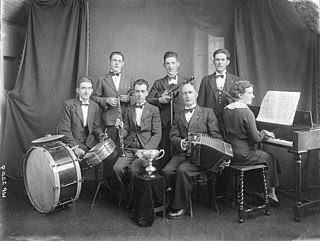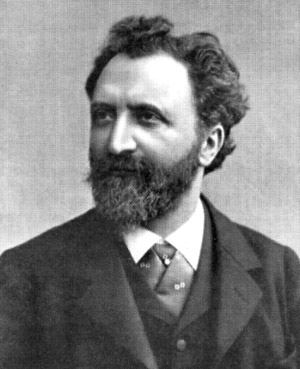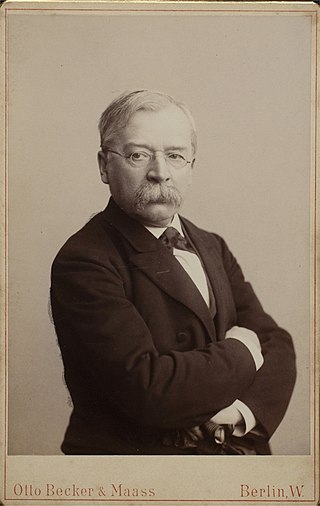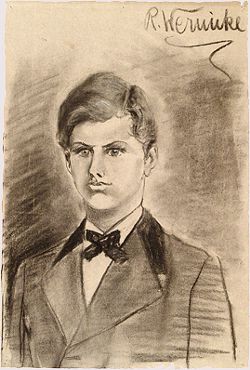| Opus no. | Name | Key | Earliest known date |
|---|
| 1 | Rondeau brillant for piano [1] | A minor-A major | Published 1824 ca. |
| 2 | Piano Sonata [2] [3] | F♯ minor | Composed 1825, published 1826/27 |
| 3 | Momento capriccioso for piano [3] | A minor | Published 1824 |
| 8 | Rondeau brillant for piano | E♭ major | c1823 |
| 12 | Introduction et Variations sur un thême suisse pour piano et cor ou violoncelle | F major | ? |
| 14 | Cello Sonata [4] [3] | A major | Composed 1826, published 1828 ca. |
| 15 | Introduction et variations brillantes sur un theme original for piano [3] | E♭ major | Published 1827/28 or earlier |
| 17 | Rondeau Brillant for piano | B minor | Published 1828 |
| 20 | Sonata for Piano 4-hands | C minor [5] | Published by 1827 [6] |
| 21 | Nocturne No. 1 in French Style (for piano 4-hands) [7] | E major | Published 1826 |
| 22 | Deuxième Nocturne à quatre mains pour le Pianoforte sur de thêmes favoris de l’Opéra Oberon de C. M. de Weber | E♭ major | Published 1826 |
| 23 | Morgenhymne. Chor f. Sopran, Alt, Tenor u. Bass m. willk. Begl. d. Pfte oder d. Physharmonica. | ? | 1829 [8] [9] |
| 25 | Sonata for Piano [10] | F major [11] | Published 1828 or earlier |
| 26 | Three Scherzi for 4 Hands [11] | D minor, E major, G major | Composed 1830 |
| 27 | 4 Lieder (texts by Heine, von Osten and Chamisso. Voice, cello (bassoon), piano) | | 1832 publication [3] |
| 28 | Waldklänge (1, 2 for soprano, horn and piano, 3 for voice, violin and piano) [12] | ? | Published 1834 |
| 29 | Serenade for four cellos | G minor-major [3] | Composed and published 1829 |
| 30 | Herbst, Verlangen, Bewußtsein – songs after Rellstab for voice, cello or horn & piano [13] | ? | Published 1832 |
| 31 | Die vier Menschenalter, Cantata after Seidl for 3 solo voices, chorus, orchestra | ? | Published 1835 (overture), [14] 1836 (vocal score) [15] |
| 32 | Symphony No. 1 | E♭ major | 1828 [16] |
| 33 | Sangerfährt (Bard's Journey), for voice and piano, to texts by Heinrich Heine [17] | ? | 1831-2 [18] |
| 34 | 3 Gedichte (texts by Heine. Voice, cello and piano) | | published 1833 [3] |
| 36 | 3 Deutsche Gesänge (voice, cello, piano. Heine & Uhland) | | published 1833 [3] |
| 39 | Sonata, for piano four-hands | F major [11] | 1832 ca., published 1834 [3] |
| 40 | Der Sternenkranz for 4 Men's Voices | A major | Published 1835 [19] |
| 41 | Symphony No. 3 | D minor | 1834 [20] |
| 44 | Symphony No. 2 | F major [3] [21] | Composed 1833 |
| 48 | Deutsche Gesänge [22] | n/a | 1836 [19] |
| 49 | 6 Deutsche Gesänge mit Begleitung des Piano Forte | n/a | 1836 [19] |
| 51 | Geistliche lieder for voice and organ or piano | C minor/E♭ [23] | 1837 [19] |
| 52 | Symphony No. 5 "Passionate/a" | C minor | 1835, premiered 23 April 1839 [24] [25] |
| 52(a?) (may be a misprint for Op. 92) | Mass for voices, orchestra and organ | E♭ | published 1844 (HMB 1845 but January 1845, so 1844) [19] [26] [27] |
| 54 | 6 deutsche Gesänge for baritone (or alto) and piano | n/a | pub. 1837 [19] |
| 56 | Symphony No. 6 | D major (D major – B major – B minor – D) [28] | published 1837 [29] |
| 56 also | 3 deutsche Gesänge | ? | 1838? [19] |
| 58 | Erhörung, f. eine Singst. m. Begl. d. Pfte u. Vclle (od. Horn.) after Otto Prechler | | 1838, [30] published 1839 [31] |
| 58 also | Symphony No. 7 | D minor | 1839 or 1840 [33] [34] [35] |
| 59 | Frauenliebe und -leben (after Chamisso), song-cycle for voice, horn and piano | E major | 1838, [36] published 1839 [31] |
| 59 also | Der Sänger am Rhein, 6 lieder for voice and piano | | Published 1835 |
| 60 | Der Sturm for chorus and optional piano | E-flat major | Published 1839 |
| 61 | 3 Gesänge von Koch [37] | ? | by 1860 |
| 62 | Vorüber! (song to text by Otto Prechtler) | F minor | 1840 or earlier (publication) [3] |
| 62 also | Introduction und Fuge für Piano-forte (or organ...) zu vier Händen | D minor | c. 1835 [38] |
| 63 | Vöglein mein Bote (songcycle, 3 songs) Die Armesünder-Blum. Die Männer sind mechant! 3 Lieder. (Vöglein flieg' fort – Am Kreuzweg wird begraben – Du sagtest mir es, Mutter.) | No. 1 is in C major with text by Johann Gabriel Seidl | 1840 [39] [40] |
| 64-66 | Gesänge für vier Männerstimmen | | published 1842 [41] |
| 70 | 3 Lieder for voice and piano | ? | published 1842 [42] |
| 71 | 3 songs for 4-part men's chorus [37] | ? | by 1843 [43] |
| 71 (also) [24] | Catarina Cornaro Königin von Cypern (Große Oper in 4 Ackten) (opera) | ? | 1841. Premiered Munich, 1841 (overture published 1843 [44] ) [45] [46] [47] |
| 75 | String Quartet No. 1 | B minor [48] | published in 1843 by Schott, Mainz. [8] [19] [49] |
| 76 | String Quartet No. 2 (Allegro-Adagio-Scherzo-Allegro) | A major | Published 1843 [8] [50] |
| 77 | String Quartet No. 3 | E♭ major [3] | 1843 publication |
| 77 also | 3 Gesänge for 3 sopranos and piano | | Published 1845 |
| 78 | 3 Gesänge for voice and piano | | Published 1845 |
| 79 | 4 Gesänge for male chorus | | Published 1845 |
| 80 | Gesänge f. 3 Sopranstimmen m. Begl. d. Pfte. (in several volumes) | ? | 3rd volume published 1847 [51] |
| 81 | 4 Lieder | | 1846 [52] Published 1847 [53] |
| 81 also | 7 Lieder (different set) | | 1845 [54] |
| 82 | Frauenliebe und -leben (after Chamisso) Song-cycle for soprano, clarinet and piano. Arrangement of Op. 59. [55] | ? | Published 1847 [56] |
| 84 | 7 Lieder for Bass | ? | pub. 1847 [57] |
| 85 | Psalm 63 for female chorus and piano or harp | E♭ major | pub. 1847 [58] |
| 86 | 3 Gedichte von F. Rückert, f. 2 Singstimmen m. Pftebegl. | ? | pub. 1847 [59] |
| 88 | Mass | ? | pub. 1847 [58] |
| 88 also | 4 Gedichte for chorus | ? | pub. 1847 [58] |
| 89 | Kriegers Gebet for male chorus and military band | E♭ major | pub. 1847 [60] |
| 90 | 15 Vespers for Chorus and Organ (Psalmi Vespertini) | ? | Manuscript, possibly unpublished. An 1850 manuscript copy exists [61] |
| 91 | Der 133te Psalm (for 4 women's voices) | B major [62] | pub. 1849 [63] |
| 92 | Mass for two "voix égales" (of the same vocal type) and organ [58] [64] | E♭ | 1847 [58] |
| 93 | 3 Gedichte von Dräxler-Manfred f. vierstimmigen Männerchor (with piano or wind) | ? | pub. 1848 [65] |
| 94 | 3 Gedichte for male chorus | ? | pub. 1849 |
| 96 | Sängerfahrt, 18 songs for voice and piano | ? | pub. 1851-52 |
| 97 | 6 vocal duets [37] | ? | by 1860 |
| 98 | Mass for soloists, chorus, orchestra and organ [24] | E♭ | ? |
| 99 | Three canons for three sopranos and piano [37] | ? | 1853 [66] Published 1855 [19] |
| 100 | Symphony No. 8 | G minor | (1851?) Published by 1855 [19] |
| 101 | 3 Lieder for voice and piano, to text by Emanuel Geibel: Des Müden Abendlied
Die junge Nonne
Schmetterling | unknown | 1856 (pub.) [19] |
| 102 | 3 Psalmen for 2 choruses | | 1856 (pub.) |
| 103 | Festchor zu Mozart's Säkularfeier for 2 bassoons, brass, timpani | E♭ major | pub. 1857 [19] |
| 104 | Siegesgesang aus Hermannschlacht by Friedrich Gottlieb Klopstock for male chorus and wind band | B minor-B major | 1856 [19] |
| 105 | 3 Gesänge for 3 Women's Voices and piano | ? | 1857 [19] |
| 106 | 6 Duets after L. Koch for soprano, alto and piano | ? | 1857 [19] |
| 107 | 4 Poems by L. Koch for vocal quartet | ? | 1858 [19] |
| 108 | 3 Quartets for Women's Voices | ? | by 1860 [19] |
| 109 | 6 Piano Pieces (ded. to Betty Schott) | n/a | 1858 [19] [3] |
| 110 | 12 Gesänge: für Sopran, Alt, Tenor & Baß [67] | ? | by 1860 [68] |
| 111 | 12 Lieder for soprano (or tenor) and piano | ? | 1861 |
| 112 | Sturmesmythe after Nikolaus Lenau for Men's Chorus and Orchestra | C major | 1861 [19] |
| 113 | Suite No. 1 for Orchestra | D minor | 1861 [69] |
| 114 | 3 Chöre for male chorus | | 1863 publication |
| 115 | Suite No. 2 for Large Orchestra | E minor [70] | 1863? [71] |
| 116 | 4 Lieder for voice and piano(texts by von Fallersleben) [3] | | 1863 publication |
| 117 | Psalm 150 for male chorus and orchestra | E♭ major [3] | 1863 [8] [72] |
| 118 | Bundeslied, for Men's Chorus, to words by Theodor Heigel | E♭ major | 1864 ca. [73] |
| 119 | Drei Gedichte von L. Koch | ? | Published 1865 [74] |
| 120 | String Quartet No. 4 | D minor | published in 1849?? (A search of HMB gives 1866 which seems more likely) [19] [75] [76] |
| 121 | String Quintet (quartet plus contrabass) | C minor [5] | pub. 1864 [77] |
| 122 | Suite No. 3 for Large Orchestra | F minor [78] | published 1866 [79] |
| 123 | Festlied for male chorus and wind band | E♭ major | Published 1867 |
| 128 | Drei Lieder für Männerstimmen [80] | ? | Published 1867 |
| 129 | Suite No. 4 for Large Orchestra | E♭ major [5] [81] | 1865? by 1866. [82] [83] |
| 130 | Mass for two choirs and soloists | F major [84] | 1872 [19] |
| 131 | 2 Motetten (1 for soprano and chorus, 2 for chorus) | | Published 1872 |
| 132 | Ave Maria (soprano, small choir, small ensemble) | ? | 1870 [19] |
| 133 | Ave Maria for alto, 2 violas, 2 cellos and double Bass, or alto and organ | G major | 1869 [19] |
| 134 | 6 Lieder for voice and piano | | Published 1868 |
| 135 | Suite No. 5 for Large Orchestra | C minor | published in 1868 [85] |
| 136 | Zigeunerlied for bass, male chorus and piano | G minor | Published 1868 |
| 136 also | An die Nacht for male chorus | E♭ major | Published 1869 |
| 137 (WulL G9) | Gebet after a text by Emanuel Geibel (for voice, 2 violins, 2 cellos and bass, or voice and organ or melodium) | C major | 1870 [86] [87] |
| 138 | Variations for Piano 4-Hands | E minor | published 1869 [19] [88] |
| 139 | Piano Quintet No. 1 | C minor | published 1870 [89] |
| 140 | Suite for Piano and Violin (or Violoncello) | A minor [90] | published in 1870 [19] |
| 140 also | Abendfriede von Lenau für Männerchor und Orchester [91] | ? | ca. 1870? |
| 141 | 4 Gesänge for male chorus or 3 voices | ? | Published 1870 |
| 142 | Suite for Piano | C minor | published in the 1860s [5] |
| 143 | Fest-marsch für Blech-instrumente (brass and drums) | E♭ major [92] | by 1873 [93] |
| 145 | Piano Quintet No. 2 | A minor | 1869 [94] |
| 146 | Requiem | F minor | 1856, revised 1865 [95] published 1871 [19] |
| 149 | Gebet for 2 sopranos and organ | F major | 1868 |
| 150 | Suite for Orchestra No. 6 | C major [96] | published 1872 [19] [97] |
| 152 | Six Songs for Alto with Piano | n/a? | by 1872 [98] |
| 153 | Horch! Die Vesper-Hymne Klingt for 2 choruses | F major | Published 1861 |
| 154 | Stabat Mater for Mixed Choir a cappella | ? | 1872 [19] |
| 155 | Mass for 5 Part Chorus (S/A/T/2B), Soloists, and Organ ad lib. | D minor | by 1872 [19] |
| 156 | Octet [99] | B♭ | published by 1850? |
| 160 | Elegie: Quintet for 5 Cellos | 1834 [100] | 1872 [19] |
| 161 | Psalm 30 (soprano and orchestra, or piano, or organ) | ? | 1873 [19] |
| 162 | Ave Maria for Soprano, chorus & accompaniment (new edition of Op. 132) | F major | Published 1873 [3] |
| 163 | Psalm 26 (bass voice and orchestra, or piano, or organ) | ? | 1873 [19] |
| 166 | Abend-Elegie : für eine Tenorstimme, Violine und Orgel oder Harmonium oder Pianoforte [91] | ? | ca. 1880 |
| 167 | 3 Chöre for male chorus | ? | 1874 |
| 168 | Stabat Mater [24] for female chorus, 2 violas, 2 cellos and double bass, or female chorus and organ or physharmonika | ? | Published by J.Aibl in mid-1870s? |
| 169 | String Quartet No. 5 | G major | Published in 1875 [19] [101] |
| 169 also | 9 Gesänge for chorus | | Published 1875 |
| 170 | Ball-Suite for orchestra | D major | by 1875 [102] |
| 172 | 6 Piano Pieces | n/a | 1876 [19] [3] |
| 173 | String Quartet No. 6 | E minor | 1848-9 [103] [104] |
| 175 | Organ Sonata No. 1 | F minor | 1877 [105] |
| 176 | Organ Sonata No. 2 | C Major | 1877 [105] |
| 177 | Organ Sonata No. 3 | E minor | 1877 [105] |
| 178 | 4 Gesänge for 2 female voices | | 1875 [106] |
| 179 | Hornesklänge (for Male chorus and winds) | E♭ major | Published 1877 [3] |
| 180 | Martini Kirchweihe for baritone and male chorus | E minor | Published 1877 [3] |
| 181 | Kriegsgesang for Men's Voices and Orchestra after Cavallo. | ? | 1877 [19] |
| 182 | Gruß des Regensburger Liederkranzes an die Festgenossen for male chorus | ? | Published 1877 |
| 184 | 3 Lieder for 2 voices and piano | ? | ? |
| 185 | 4 Gesänge for 4 voices | ? | 1879 |
| 186 | 4 Gesänge for 4 voices | ? | 1880 |
| 187 | 6 Songs for 4 Female Voices [24] | n/a | 1880s? |
| 190 | Suite No. 7 for Orchestra | D minor | 1881 [69] |
| 191 | Partsongs for male chorus | n/a | Published 1885 |











